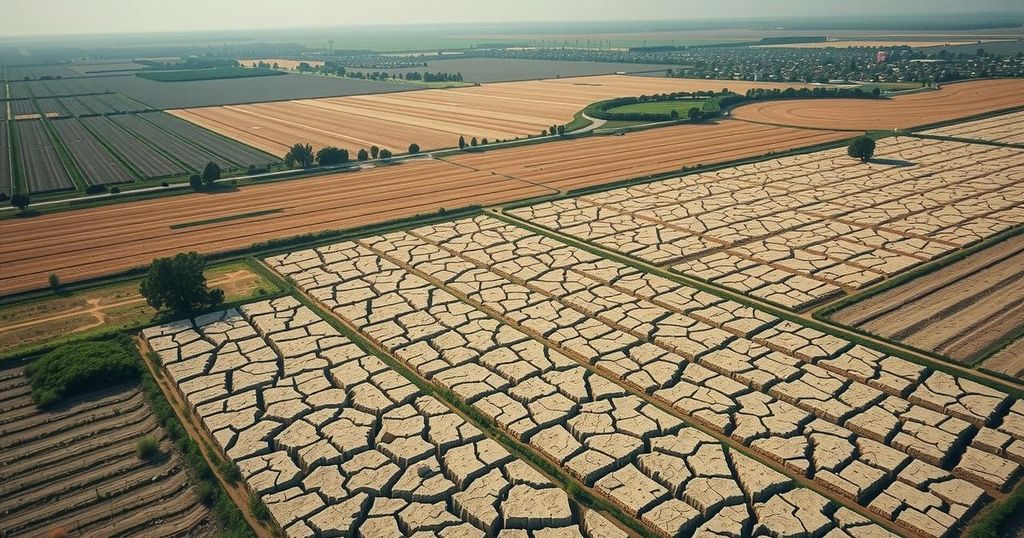Climate Change Sparks Water Crisis Threatening Global Food Security

A recent report by the Global Commission on the Economics of Water warns that climate change is severely jeopardizing fresh water supplies, placing over half of global food production at risk by 2050. The commission emphasizes the need for multinational cooperation to manage water resources sustainably, highlighting the drastic potential impacts on agricultural output and economic growth worldwide.
A recent report from the Global Commission on the Economics of Water (GCEW) has highlighted an alarming trend regarding global supplies of fresh water, indicating that they are increasingly unreliable due to altered rainfall patterns attributed to climate change. The commission warns that without immediate action, more than half of the world’s food production could be jeopardized by the year 2050. The GCEW, established in 2022 by the Netherlands, asserts that the combination of climate change, destructive land use practices, and inadequate water management has placed unprecedented stress on the global water cycle. Reportedly, nearly three billion individuals, along with a significant portion of global agricultural output, reside in regions where the water storage is expected to diminish, particularly in densely populated areas such as northwestern India, northeastern China, and southern and eastern Europe. The consequences for agriculture are dire, with predictions suggesting that cereal production could decline by as much as 23 percent if trends continue. The report identifies a vicious cycle created by rising temperatures, which exacerbates the evaporation of ‘green water’—the moisture found in diverse ecosystems that contributes significantly to global rainfall. Elevated temperatures yield drier soils, aggravating drought conditions and wildfires, leading to further degradation and loss of biodiversity, which in turn diminishes the availability of ‘green water’. Moreover, disruptions in the water cycle may lead to major global economic repercussions, with high-income countries potentially facing an 8 percent drop in GDP by 2050, and lower-income nations facing reductions as steep as 15 percent. In light of these challenges, the GCEW advocates for global collaboration regarding water resources management, proposing that the water cycle should be regarded as a “global common good”. Co-chair of the GCEW, President Tharman Shanmugaratnam of Singapore, emphasized the necessity of establishing shared goals for water sustainability and pursuing a worldwide water pact in the coming years. Furthermore, the report suggests that harmful subsidies in water-intensive sectors need to be eradicated, with annual agricultural subsidies amounting to approximately $600 billion requiring redirection towards sustainable practices. Ngozi Okonjo-Iweala, Director-General of the World Trade Organization and another co-chair of the GCEW, noted the importance of refraining from planting water-intensive crops in unsuitable regions to alleviate the strain on water resources.
The Global Commission on the Economics of Water (GCEW) has been researching the intersecting crises of water scarcity, climate change, and food security since its inception in 2022. It seeks to draw attention to how changes in climate can alter rainfall patterns and water storage, thereby affecting agricultural outputs and economic stability globally. With nearly three billion people affected by declining water supplies, the situation necessitates urgent international cooperation and strategic policymaking to prevent potential crises in food production and economic growth.
In summary, the GCEW’s report emphasizes the urgent need for global action to combat the forthcoming water crisis driven by climate change, highlighting the interconnectedness of water resource management, agricultural practices, and economic stability. It advocates for the establishment of a global pact to promote sustainability and ensure that vulnerable communities receive the support necessary to navigate these challenges. Without proactive measures, the potential risks to food production and economic health are profound.
Original Source: www.rfi.fr






